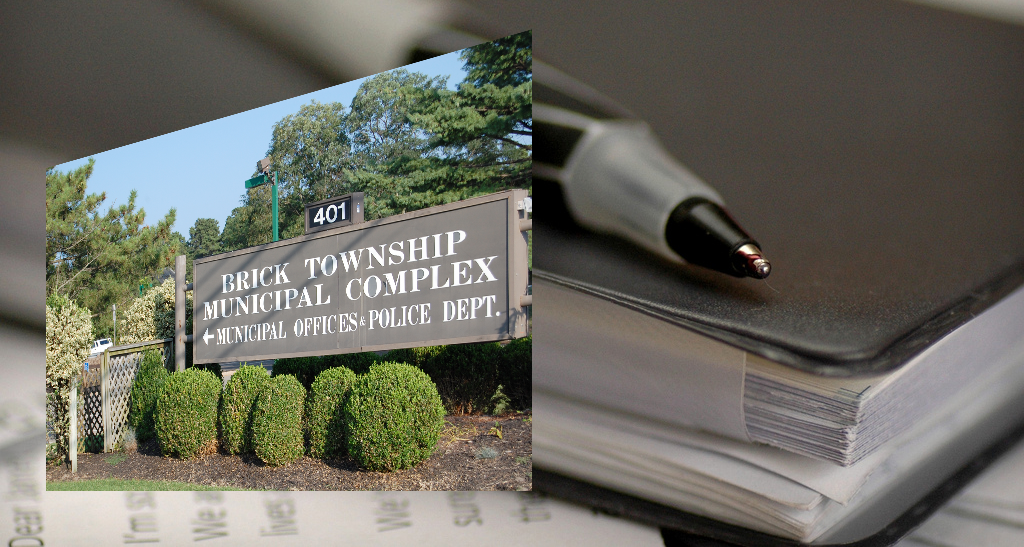Brick Township’s municipal budget will increase by just 0.65 percent in 2015 under Mayor John Ducey’s proposed 2015 budget, but property tax bills will rise 1.9 cents per $100 of assessed real property as the township’s ratable base is still bruised and battered from Superstorm Sandy.
Ducey proposed the $98,917,050 spending plan for 2015 Tuesday night. The budget, which must be ratified by the township council, will be supported by a tax levy of $69,861,325, an increase of $1,949,786 over last year. The remainder of the budget is funded through state and federal aid, grants and other revenue sources.
For a Brick resident with a home valued at $248,900 – the median value in the township – the municipal portion of the annual property tax bill would rise by $47.29. On Wednesday, the county will introduce its budget, which also includes a small tax increase. On Thursday, the Board of Education – the largest portion of residents’ property tax bills – will introduce its budget.
|
|
Though the budget rose by less than 1 percent, the tax increase this year is primarily due to Brick’s smaller tax base due to Sandy, as well as a number of debts from the storm’s cleanup coming due. When the value of homes decline – or are erased from the tax rolls after being destroyed – the remaining properties in the township must make up the difference. In Brick, Ducey said the tax base is still down $362,254,766 from pre-Sandy levels. That alone equates to a loss of $1,940,580 in tax revenue – nearly the entire increase this year – which must be paid by other residents. Additionally, Ducey said, the township must pay $3,726,150 in emergency note interest and principal payments related to storm cleanup. Altogether, Sandy-related expenses and the loss of tax base add up to $5,766,730 in the budget, equivalent to 5.62 cents on the tax rate.
Ducey said since being elected last year, he and his team looked to soften the blow to taxpayers, reorganizing the money-losing building department to generate revenue for the first time in several years. The township also cut overtime expenses by more than $700,000 from the year before.
“That is money we are saving in this year’s budget,” Ducey said. “For the first time in over two decades, our Building Department saw revenue outpace operating expenses and we are saving hundreds of thousands in perpetuity from eliminating several six figure positions.”
The budget proposed by Ducey also maintains $6 million in the township’s surplus fund. Mayors in the past have often faced questions from residents about leaving a healthy surplus balance of using the account to pare down the tax levy. Ducey said leaving a significant surplus balance is “smart financial policy.”
“On one hand, it is looked upon positively by bond rating agencies which translates to lowering interest rates for the town,” Ducey said. “It also provides the township with the ability to more effectively manage cash flow and a ‘rainy day’ fund for emergencies. Just like you want to keep a healthy balance in your savings account at home, the township wants to have a healthy surplus.”
At one point, in 2010, the township’s surplus fund was worth just $48,724.
Of all the elements that make up the annual operating budget, salaries and wages are the largest item, at 21 percent. The largest portion of that 21 percent goes toward police salaries, a necessity Ducey says is of the utmost importance.
“It is hard to put a price on what we would be willing to pay to keep our residents safe,” he said. “But we don’t want to know the cost of underfunding our police and public safety.”
Ducey said he had help developing the proposed budget from Council President Paul Mummolo and Council Vice President Heather deJong and Councilwoman Susan Lydecker, as well as the heads of township departments, who “have wholeheartedly embraced our philosophy of doing more with less.”

Advertisement

Police, Fire & Courts
Man Who Stabbed Brick Woman 38 Times Near Park is Sentenced for Attempted Murder

Police, Fire & Courts
Driver Charged With DWI in Fatal Brick Accident; SUV Was In Wrong Lane of Route 70

Police, Fire & Courts
Police ID Victim, 58, in Fatal Brick Car Accident; Suspect Facing DWI Charge









